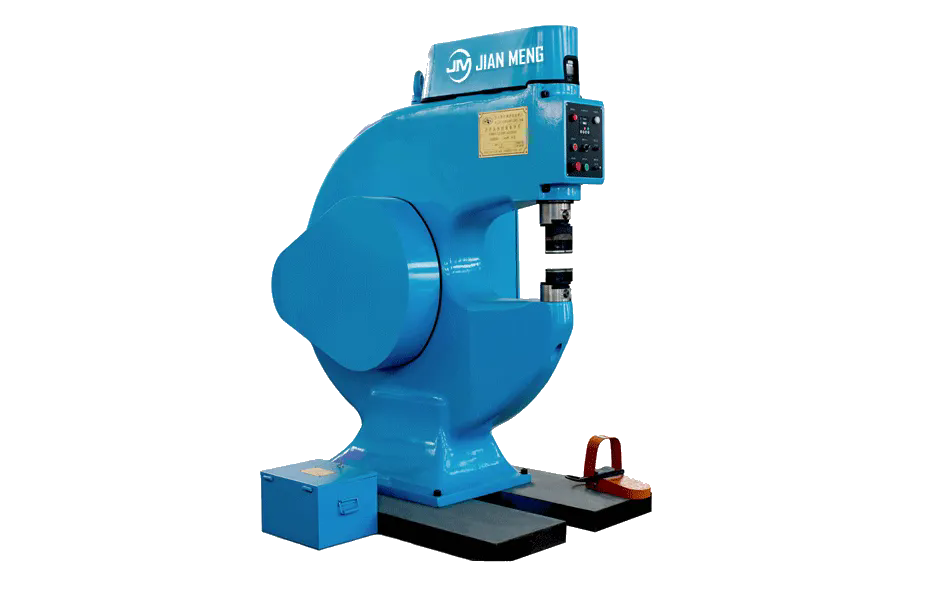Understanding Metal Forming Machines: Your Questions Answered
2024-11-04
Metal forming machines play a crucial role in various industries, shaping and manipulating metal materials into desired forms for use in construction, manufacturing, and more. In this Q&A blog, we’ll explore the most common questions about metal forming machines, including their types, applications, and benefits.
What is a metal forming machine?
A metal forming machine is a piece of equipment designed to reshape or manipulate metal materials into specific forms or profiles. This process can involve various techniques, such as bending, rolling, forging, and stamping. Metal forming machines are essential in industries like automotive, aerospace, construction, and manufacturing, where precision and efficiency are critical.
What are the different types of metal forming machines?
There are several types of metal forming machines, each designed for specific applications:
1. Press Brakes: Used for bending sheet metal, press brakes apply force to create precise angles and shapes.
2. Roll Forming Machines: These machines continuously bend metal into desired shapes by passing it through a series of rollers.
3. Stamping Machines: Stamping machines create shapes by cutting or deforming metal sheets using dies.
4. Forging Machines: These machines apply compressive forces to shape metal, typically involving heat to make the material more malleable.
5. Hydraulic Benders: Utilizing hydraulic pressure, these machines can bend metal pipes and tubes into complex shapes.
Each type of machine serves unique functions and is tailored to specific materials and production requirements.
What materials can be processed by metal forming machines?
Metal forming machines can process a wide variety of materials, including:
- Steel: Widely used due to its strength and versatility, available in various grades and forms.
- Aluminum: Lightweight and corrosion-resistant, aluminum is often used in automotive and aerospace applications.
- Copper: Known for its excellent electrical conductivity, copper is commonly used in electrical applications.
- Brass: With its attractive appearance and corrosion resistance, brass is often used for decorative items and fittings.
These machines can handle both ferrous and non-ferrous metals, making them versatile tools in manufacturing.
What are the advantages of using metal forming machines?
The use of metal forming machines offers several advantages:
- Precision: These machines can produce highly accurate and consistent shapes, minimizing material waste and reducing the need for additional machining.
- Efficiency: Automated metal forming machines can operate at high speeds, increasing production rates and lowering labor costs.
- Versatility: Metal forming machines can process various materials and shapes, making them suitable for diverse applications across industries.
- Durability: Products made from metal forming processes are often stronger and more durable, contributing to the overall quality of the final product.
These benefits make metal forming machines an essential investment for manufacturers seeking to improve productivity and quality.
How do metal forming machines work?
The operation of metal forming machines varies based on the type of machine and the specific forming process being used. However, the general principles involve:
1. Material Loading: Metal sheets, bars, or coils are loaded into the machine.
2. Forming Process: Depending on the machine, the metal is bent, rolled, forged, or stamped using mechanical force or hydraulic pressure.
3. Finishing: The formed metal may undergo additional processes, such as trimming, cleaning, or surface treatment, to achieve the desired finish.
Advanced control systems and computer numerical control (CNC) technology enhance the precision and repeatability of these processes, allowing for complex designs and high production rates.
What industries utilize metal forming machines?
Metal forming machines are utilized across numerous industries, including:
- Automotive: For producing body panels, chassis components, and structural parts.
- Aerospace: In the manufacture of aircraft components that require precise tolerances and high strength.
- Construction: For creating structural elements, roofing, and architectural features.
- Manufacturing: In general manufacturing for producing parts and components across various sectors.
The versatility of metal forming machines makes them indispensable in any industry that relies on metal components.
What should I consider when choosing a metal forming machine?
When selecting a metal forming machine, consider the following factors:
- Type of Material: Ensure the machine is compatible with the materials you plan to work with.
- Production Volume: Evaluate the machine's capacity to meet your production needs, whether for small batches or high-volume production.
- Precision Requirements: Determine the level of precision required for your applications and choose a machine that can meet those specifications.
- Space and Setup: Consider the available space in your facility and the machine's installation requirements.
- Budget: Assess your budget and balance it against the features and capabilities of the machine.
By considering these factors, you can select a metal forming machine that best meets your operational needs.
How can I maintain metal forming machines for optimal performance?
Regular maintenance is crucial for ensuring the longevity and efficiency of metal forming machines. Here are some maintenance tips:
- Routine Inspections: Conduct regular checks for wear and tear on components, such as dies, blades, and rollers.
- Lubrication: Ensure all moving parts are properly lubricated to reduce friction and wear.
- Cleaning: Keep the machine clean from metal shavings, dust, and debris to prevent damage and ensure smooth operation.
- Calibration: Regularly calibrate the machine to maintain accuracy and precision in the forming processes.
- Operator Training: Ensure that operators are properly trained on machine operation and safety to minimize the risk of accidents and machine damage.
Following these maintenance practices can help extend the life of your metal forming machines and enhance their performance.
What are the latest trends in metal forming technology?
The field of metal forming technology is constantly evolving. Some recent trends include:
- Automation and Robotics: Increased integration of automation and robotic systems to enhance efficiency and reduce labor costs.
- Smart Manufacturing: The use of IoT (Internet of Things) technology to monitor machine performance and improve maintenance schedules.
- Advanced Materials: Development of new alloys and materials that require specialized forming processes.
- Energy Efficiency: Focus on energy-efficient machines and processes to reduce operational costs and environmental impact.
These trends indicate a movement towards more efficient, precise, and sustainable metal forming solutions.
How can I find a reliable manufacturer or supplier of metal forming machines?
To find a reputable manufacturer or supplier of metal forming machines, consider the following steps:
- Research: Look for companies with a strong reputation in the industry, focusing on those with positive reviews and testimonials.
- Experience: Choose manufacturers with extensive experience and expertise in metal forming technology.
- Support and Service: Evaluate the level of customer support and service offered, including training, maintenance, and troubleshooting assistance.
- Customization: Consider suppliers who can provide custom solutions tailored to your specific needs.
- Visit Trade Shows: Attend industry trade shows to meet manufacturers and suppliers, see their products firsthand, and compare options.
By following these steps, you can identify a trustworthy manufacturer or supplier for your metal forming machine needs.
Conclusion:
Metal forming machines are essential tools in modern manufacturing, providing efficiency, precision, and versatility across various industries. By understanding the different types, materials, and benefits of these machines, you can make informed decisions that enhance your production capabilities. Whether you are involved in automotive, aerospace, or general manufacturing, investing in the right metal forming machine will contribute to your operational success.



